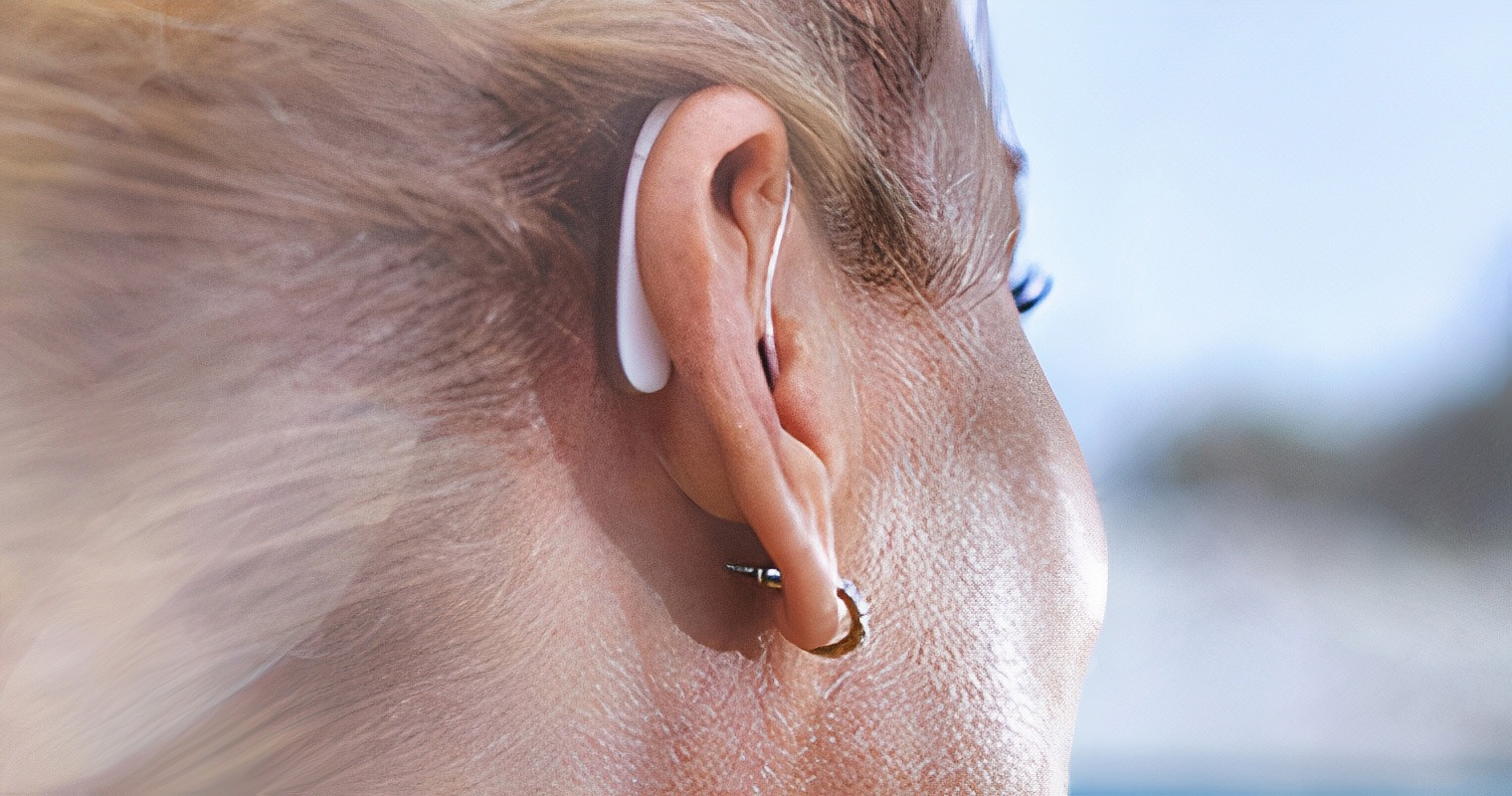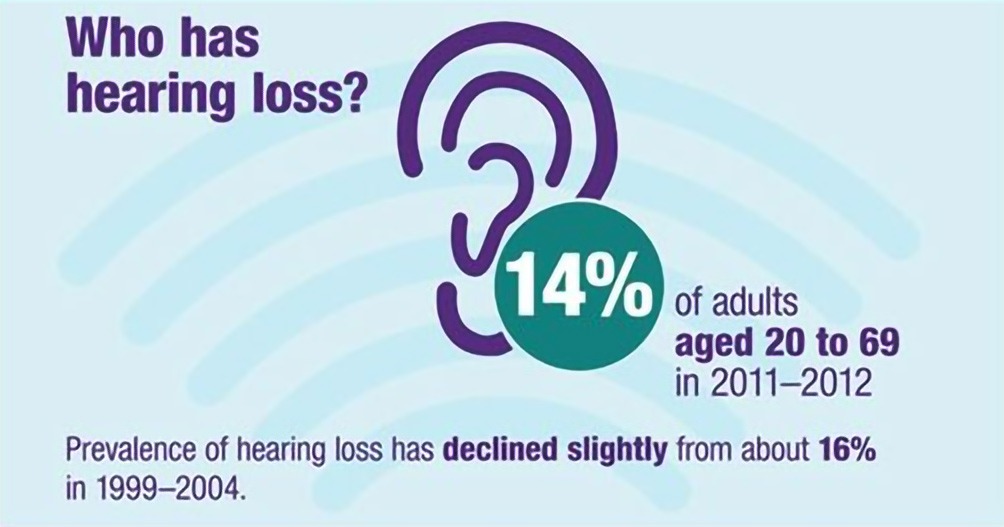An Ophthalmologist is an eye M.D.; a medical doctor specializing in eye and vision care. Audiologists are experts in the structures of the middle and inner ear. Both are trained to provide the full spectrum of eye care, from exams and diagnosis, to prescribing glasses or contact lenses. However, and Ophthalmologist can preform complex and delicate eye surgery.
Undetected loss of vision can also cause confusion or depression. People with diabetes can have bleeding of the retina and a higher risk of developing glaucoma, cataracts and diabetic retinopathy. At least 50% of those diagnosed with glaucoma are unaware of their condition; and 61% of Americans require some form of vision correction.
Cutting edge hearing aid technology is making great strides in improving how people hear in noisy environments, large crowds. Many of today’s hearing aids can stream sound wirelessly from your TV, radio, computer or other devices directly into your hearing aids.
Services
Hearing Professionals should offer a full spectrum of hearing related services including:
- testing, programing services
- general hearing-related health education
- an in-office hearing aid demonstration
- medical referral, if necessary
Your fitting appointment with your provider should include:
- fine tuning of your instruments
- practice inserting and removing your aids
- changing batteries, cleaning and storage options
- practice controlling your aids, volume/memory buttons, accessories, etc.
A hearing professional will provide continued support and maintenance services after your purchase including:
- program adjustments and reinstruction
- clean and check services
- repairs and warranty services
Your hearing professional should schedule follow-up appointment(s) during your trial period to make necessary program adjustments, modifications, or re-instruction, as needed.
Specialization
A Hearing Instrument Specialists may or may not be Audiologists. Licensure of audiologists is mandatory in all states. Ophthalmologist is a medical doctor while an Optometrist has earned the Doctor of Optometry (OD) degree.
Preparation
- Know your parents prior optical history.
- It’s helpful to have possession of former records.
- When was the last optical visit, and the reason for the visit?
- Have medical insurance card and/or L&I paperwork if applicable.
Evaluation
- Is the doctor accepting new patients?
- Are patients with special conditions (Alzheimer’s/Dementia) considered?
- Is the office wheel chair accessible?
- Does the doctor have a specialization in treating seniors?
- Do the specialists or audiologist rotate between offices?
- Can you see the same practitioner each time if you prefer?
- Are in-home or on-site services offered such as in retirement or nursing homes?
- Are there fees for out of office services?
- What are your providers return policy? Are there any fees associated with returning your hearing aids?
- What fees can you expect after the sale? Do they charge for program adjustments, clean and check services, in-house repairs for minor cracks, broken battery doors, etc.
- If a move is on the horizon, who can service my aids.
- Provide references.
Hearing Care Radio Show Segments
- How to Improve Your Hearing, Part 4 with Hope Lanter
This hour, Suzanne Newman talks about hearing loss with Dr. Hope Lanter, lead audiologist and director of partner success at Hear.com.
Some health issues can be exacerbated by hearing loss. This segment focuses on the effects of hearing related to health issues, such diabetes, Alzheimer’s and dementia. Diabetes creates blood flow issues and can impact the hearing nerve. Regarding Alzheimer’s, the brain is a use-it-or-lose-it place. When we stop stimulating the brain with sounds for too long, it can forget how to process them. We see a dramatically faster progression of that when we don’t use hearing aids when they’re needed. If you’re experiencing some hearing loss, or even wondering if you are, Hear.com has a 45-day no-risk trial offer. Take a free assessment questionnaire at Hear.com or (786) 520-2456 and see if it’s worth investigating.
- How to Improve Your Hearing, Part 3 with Hope Lanter
This hour, Suzanne Newman talks about hearing loss with Dr. Hope Lanter, lead audiologist and director of partner success at Hear.com.
This segment focuses on advancements in hearing technology. Hear.com’s hearing aids are bluetooth devices with an app to change modes for extra clarification in a setting like a restaurant, an omni-directional mode when walking outdoors, and other options. It directionally amplifies who you’re looking at, particularly noticeable in restaurants. Volume also can be adjusted from a cell phone. Call audio and even TV audio can be piped through the hearing aid. If you’re experiencing some hearing loss, or even wondering if you are, Hear.com has a 45-day no-risk trial offer. Take a free assessment questionnaire at Hear.com or (786) 520-2456 and see if it’s worth investigating.
- How to Improve Your Hearing, Part 2 with Hope Lanter
Why miss out on life because you’re not hearing well? Some health issues can be exacerbated by hearing loss.
This hour, Suzanne Newman talks about hearing loss with Dr. Hope Lanter, lead audiologist and director of partner success at Hear.com. Hear.com has a resource center and a host of informative articles. Hope talks more about what happens after taking an assessment, a consultation, a recommendation (based on individual life style and budget), and finding a local vetted provider. If you’re experiencing some hearing loss, or even wondering if you are, Hear.com has a 45-day no-risk trial offer. Take a free assessment questionnaire at Hear.com or (786) 520-2456 and see if it’s worth investigating.
- How to Improve Your Hearing, Part 1 with Hope Lanter
Statistics show that about 47 million adults have some level of hearing loss, many who are under 70 years old.
This hour, Suzanne Newman talks about hearing loss with Dr. Hope Lanter, lead audiologist and director of partner success at Hear.com. Suzanne talks about being fitted with hearing aids thanks to Hear.com. Hope talks about the experiences of those who reach out to Hear.com, talking about symptoms of hearing loss, particularly when our loved ones notice it. Now that Suzanne has hearing aids, she’s noticing sounds she hasn’t heard in years, finds her new spectrum of sounds amazing, and improved the quality of her life. If you’re experiencing some hearing loss, or even wondering if you are, Hear.com has a 45-day no-risk trial offer. Take a free assessment questionnaire at Hear.com or (786) 520-2456 and see if it’s worth investigating.
- Hearing loss, Part 2 with Jayson Sargent
Jayson Sargent at Hear.com joins the show to talk about hearing loss. In this segment, Jayson talks about his experiences helping people with their hearing, what to expect from the process, and how the technology works. Suzanne was just fitted with hearing aids, and shares her journey. Many listeners may have seen a TV ad for Hear.com, but perhaps weren’t sure what to expect, or are hesitant to get checked. With technology today, you can’t tell when someone’s wearing them, as Suzanne is during this recording.
- Hearing loss, Part 1 with Jayson Sargent
Jayson Sargent at Hear.com joins the show to talk about hearing loss, and Suzanne shares her own personal journey about signs of hearing loss. People will sound like they’re mumbling, your ears may feel stuffy, but the best way to be sure is to get a hearing test. Suzanne wears hearing aids during these segments.












